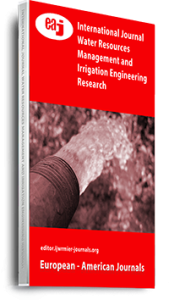This study appraised the impact of slum environment on the residents of Bulbula Slum in Jos, Plateau State, Nigeria and determined the standard slum deprivation index (SDI) for this area. The survey research design was adopted with questionnaire and interview serving as the instruments of data collection. 200 households were purposively selected and sampled while 14 community leaders were purposively selected according to the number of streets in Bulbula and interviewed. The study also utilized the WaSH (Water, Sanitation and Hygiene) and DPE (Dwelling and Physical Environment) as the measurement scale for the assessment (with the scale code of 0 = no access and 1 = access; 0 value for SDI meaning not deprived at all and 1 meaning 100 percent deprived). It was found that the study area was deprived in both the WaSH and DPE. The average SDI for Bulbula is 0.58 and the test of hypothesis also established a relationship between the SDI and attitude of the residents to environmental issues and the relationship model is y = 0.41175 + 2.979742x, where x is SDI and y is the attitude of the respondents to the environment. It was established that the relationship is positive on the average and more deprivation will lead to bad attitude of residents towards environmental issues. The study suggests that it is important to enhance the educational opportunities for slum dwellers in order to increase their awareness of the health risks associated with living in an unsanitary environment. Furthermore, there should be a greater effort to raise awareness in the slum area through collaborative initiatives with non-governmental organizations. It is important to prioritize environmental sanitation and promote poverty alleviation projects to enhance the socio-economic conditions of the area for the inhabitants.
Keywords: Evaluation, impact of slum environment, residents of Bulbula Slum.

